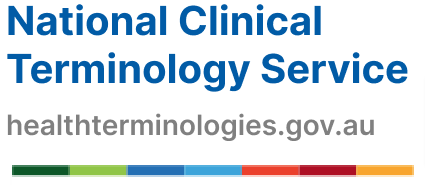Terminology as a service
A terminology server manages and provides access to clinical terminology. It supports consistent clinical data entry. Applications can delegate terminology operations to an external service, such as offered by the National Clinical Terminology Service (NCTS). This allows software developers and data analysts to take advantage of the benefits of terminology without dealing with implementation detail and complexity.
The National Clinical Terminology Service
The National Clinical Terminology Service (NCTS) is a suite of software and services that distribute the national terminology sets to users, and ease terminology adoption. It adopts the native FHIR standard. This approach simplifies terminology integration by:
- making it easier to keep up to date with national releases
- allows applications to retrieve various terminology products via common APIs
- enabling consistent entry of clinical data, e.g. patient observations, findings and events
You have many options in adopting the NCTS. Broad levels of adoption are:
- National Infrastructure Services only
- National Infrastructure Services and a local Design Time Terminology Servers
- National Infrastructure Services and local Design and Run Time Terminology Servers
These options map to the following key integration patterns:
Design-time integration
 Benefit: No dependency on availability of the National Terminology Server.
Benefit: No dependency on availability of the National Terminology Server. Consider: Higher vendor cost or administration overhead to update terminology content.
Consider: Higher vendor cost or administration overhead to update terminology content.
Vendor systems adopt content from the National Terminology Server at design time and include them in the build of their software. Manage future updates by regular patches or configuration.
Run-time integration
 Benefit: Latest terminology content readily available via the National Syndication Server.
Benefit: Latest terminology content readily available via the National Syndication Server. Consider: Dependency on the availability of the Terminology Server instance.
Consider: Dependency on the availability of the Terminology Server instance.
Vendor systems leverage the Integration API of a local Terminology Server (e.g. Ontoserver) instance for production use. Note that the National Terminology Server is not recommended as the server endpoint for this approach.
Run-time integration with caching
 Benefit: Continuous operation even when the Terminology Server instance is unavailable; ability to stage or buffer change.
Benefit: Continuous operation even when the Terminology Server instance is unavailable; ability to stage or buffer change. Consider: More complex implementation for vendors and potentially more complex configuration/administration.
Consider: More complex implementation for vendors and potentially more complex configuration/administration.
Vendor systems leverage the Integration API of a configured Terminology Server instance to maintain a local cache for operational use.
What are the benefits of using the NCTS?
 Developers don’t need to learn native SNOMED RF2 file structures.
Developers don’t need to learn native SNOMED RF2 file structures. The RF2 files are preprocessed and distributed as binary indexes.
The RF2 files are preprocessed and distributed as binary indexes. The preferred term is the default display name (human-readable text) for a code.
The preferred term is the default display name (human-readable text) for a code. Only active concepts are returned unless inactive status is specified.
Only active concepts are returned unless inactive status is specified. Syndicate to maintain data currency more easily.
Syndicate to maintain data currency more easily. Ontoserver provides much more relevant and built-in search functionality and algorithms.
Ontoserver provides much more relevant and built-in search functionality and algorithms.
What tools are available?
The National Terminology server (NTS) provides FHIR-based access to terminologies including SNOMED CT-AU and LOINC.
The National Syndication Server (NSS) is a server that exposes an Atom-based feed of national terminology release files.
Ontoserver is a terminology server implementation that conforms to the NCTS specifications, provided free of charge for use in local deployments.
The NCTS portal (this website) is where users can register for an account, download terminologies and documentation. An additional role is the Responsible Person that manages access on behalf of organisation accounts and create API credentials for terminology servers requiring authentication.
Shrimp and Snapper are user-friendly tools for searching, evaluating and creating FHIR-based terminologies. Both can be connected to any Ontoserver using its RESTful API.
Technical guidance
NCTS Guide for Implementers
NCTS Specifications
What terminology products are available?
SNOMED CT-AU release bundle (RF2) in Full, Snapshot and Delta formats.
SNOMED CT-AU reference sets as HL7™ FHIR® standard value sets or in TSV format.
NCTS FHIR terminology resources as CodeSystems, ValueSets and ConceptMaps.
Royal College of Pathologists of Australasia (RCPA) terminology and information resources.
LOINC.

